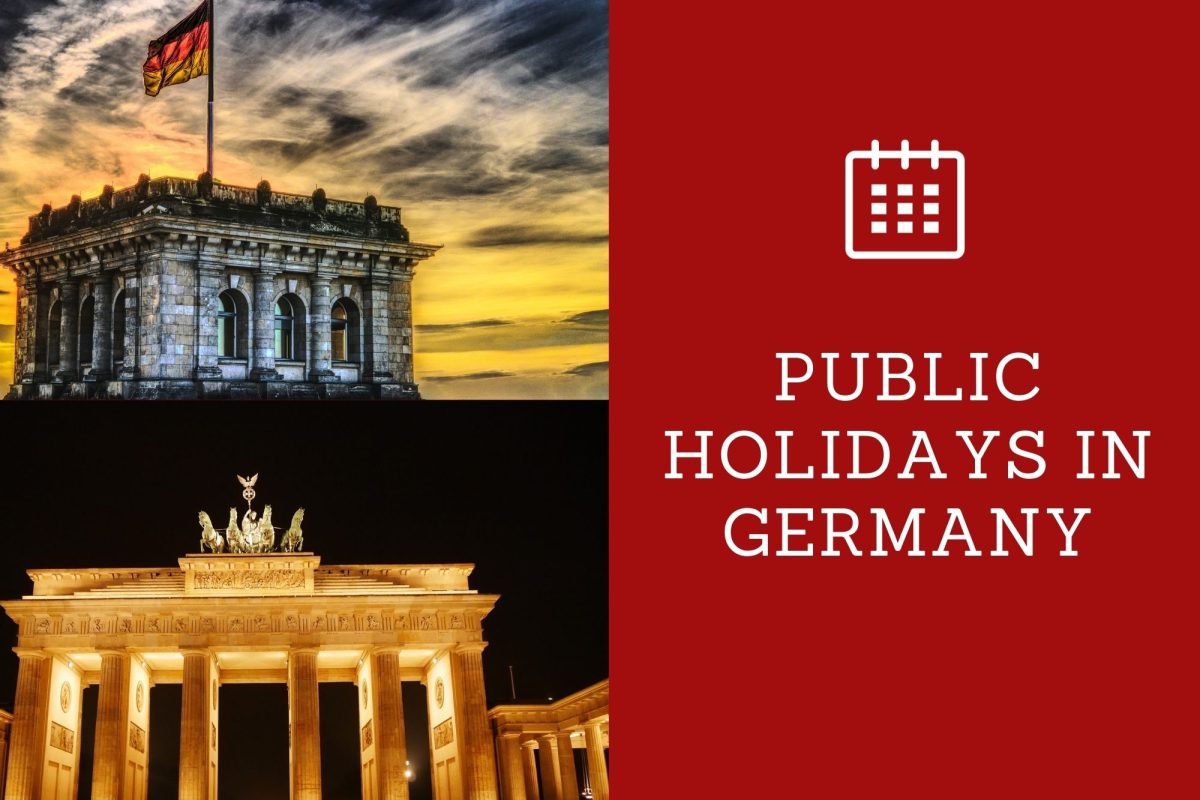Germany has a rich history and diverse cultural landscape, reflected in its public holiday calendar. For businesses operating in Germany, it’s essential to understand these holidays to ensure compliance with labor laws, manage employee leave, and maintain operational efficiency.
Key Public Holidays in Germany for 2025
Below is a list of the major public holidays observed nationwide in Germany for 2025. These holidays celebrate significant historical events, cultural heritage, and religious traditions.
Date | Holiday | Description |
|---|---|---|
January 1 | New Year’s Day | Marks the beginning of the year, celebrated with fireworks, parties, and family gatherings. |
April 14 | Good Friday | A Christian holiday commemorating the crucifixion of Jesus Christ, observed with church services. |
April 17 | Easter Monday | The day after Easter Sunday, a public holiday for family gatherings and outdoor activities. |
May 1 | Labor Day | Celebrates workers’ rights and achievements, featuring parades and demonstrations in many cities. |
May 9 | Ascension Day | Celebrated 40 days after Easter, commemorating the ascension of Jesus Christ, often marked with church services. |
May 20 | Whit Monday | The day after Pentecost, observed with church services and family activities. |
October 3 | German Unity Day | Celebrates the reunification of East and West Germany in 1990, marked with festivals and events nationwide. |
December 25 | Christmas Day | A major Christian holiday celebrating the birth of Jesus Christ, typically spent with family and friends. |
December 26 | Second Day of Christmas | The day after Christmas, known for relaxation, family visits, and additional festive gatherings. |
Regional Holidays
In addition to the national holidays listed above, Germany has several regional holidays that vary by federal state. These holidays reflect local customs and traditions.
Date | Holiday | Description |
|---|---|---|
January 6 | Epiphany | Celebrated in Bavaria and Baden-Württemberg, commemorating the visit of the Magi to Jesus. |
May 30 | Corpus Christi | Observed in several states, particularly in Catholic regions, marked by processions and church services. |
October 31 | Reformation Day | Celebrated mainly in Protestant areas, commemorating Martin Luther’s Reformation. |
November 1 | All Saints’ Day | Observed in Catholic regions, a day to honor all saints and martyrs. |
December 25 | Christmas Day | Celebrated in a similar manner nationwide, with additional emphasis on local traditions. |
Additional Holidays and Observances
Germany also observes several cultural and religious festivals that, while not official public holidays, are significant and widely celebrated.
Date | Holiday/Observance | Description |
|---|---|---|
February 14 | Valentine’s Day | Not a public holiday, but widely celebrated with romantic gestures, gifts, and dining. |
October 31 | Halloween | Gaining popularity in recent years, particularly among children, marked with costumes and festivities. |
Advent Season | Advent | Leading up to Christmas, many people celebrate with Advent calendars and decorations. |
Employer Considerations for Managing Public Holidays in Germany
National vs. Regional Holidays
Employers should be aware that Germany’s public holiday schedule includes both national and regional holidays. For example, while New Year’s Day and Christmas Day are nationwide holidays, Epiphany and Reformation Day are only observed in specific states. This distinction is important for managing employee leave and ensuring compliance with local regulations.
Managing Public Holidays with EOR/PEO Services
For businesses without a direct presence in Germany, using Employer of Record (EOR) or Professional Employer Organization (PEO) services can simplify the management of public holidays. These services ensure compliance with local labor laws, manage employee entitlements, and handle payroll processing related to holiday pay.
Holiday Pay and Compliance
German labor law mandates that employees are entitled to paid leave on public holidays. Employers must ensure they comply with these regulations to avoid disputes. Key points include:
Paid Leave: Employees are entitled to paid leave for public holidays. If a public holiday falls on a weekend, it is generally not compensated.
Work on Public Holidays: Employees who work on a public holiday are entitled to additional compensation, usually at a higher rate (e.g., 125% or 150% of regular pay), or they may receive an additional day off.
Productivity and Holiday Planning
Many businesses in Germany close or operate at reduced capacity during major holidays, especially Christmas and New Year. Employers should plan ahead for these closures and manage workflows accordingly. Strategies may include:
Staffing Solutions: Implementing flexible work schedules or hiring temporary staff during peak holiday periods.
Clear Leave Policies: Establishing transparent policies regarding holiday leave requests, especially during busy holiday seasons.
Advance Planning: Adjusting project deadlines and workflows to accommodate potential slowdowns during holiday periods.
Final Thoughts
Understanding Germany’s public holiday calendar is essential for local and international employers. By properly managing these holidays, businesses can ensure compliance with labor laws, maintain employee satisfaction, and avoid disruptions in operations.
GlobainePEO – Your Trusted Partner
At GlobainePEO, we help employers navigate the complexities of managing public holidays in South Africa. From ensuring compliance with provincial laws to managing holiday schedules, we provide the support your business needs to thrive. Let us handle your workforce management while you focus on growing your business.

